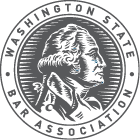Trust Account FAQ
Page Contents:
Unidentified owners and unclaimed property.... 1-3
Recordkeeping.... 4-5
Disbursements.... 7-14
Notice.... 15
Deposit.... 16-18
General banking.... 19-25
Reconciliation.... 26
Receive Personalized and Confidential Assistance
Unidentified Owners and Unclaimed Property
1. What do I do if I have funds in my account that I can’t identify? (Proposed rule change under consideration.)
Comment 6 to RPC 1.15A states that a lawyer has a duty to take reasonable steps to locate a person for whom they hold funds. If that person cannot be found, then the funds must be handled according to the Uniform Unclaimed Property Act, RCW 63.30, which usually results in the funds being remitted to the State of Washington Department of Revenue Unclaimed Property Division, even if the owner of the funds cannot be determined. At the time these FAQs were written, the Washington Supreme Court was considering a proposed change to RPC 1.15A that would require all unidentified funds be remitted to the Legal Foundation of Washington (LFW). Proposed rule change.
2. What do I do when I send checks to someone and they don’t cash them?
The RPCs do not address this specifically. However, a good practice would be to establish procedures whereby you review all outstanding checks every six (6) months to see what checks are still outstanding and follow up with those payees to try to determine why the checks were not cashed. This practice would supplement, but not take the place of, monthly trust account reconciliations, which involve accounting for outstanding checks. See RPC 1.15A(h)(6). The State of Washington has determined that funds held by a fiduciary that have not been claimed for three years must be remitted as unclaimed property - See item 1 above.
3. What do I do when I’m holding funds for someone but cannot locate them?
Comment 6 to RPC 1.15A states that a lawyer has a duty to take reasonable steps to locate a client or third person for whom the lawyer is holding funds. If the lawyer cannot locate the person owed funds by the lawyer, the funds should be treated as unclaimed property and submitted to the State of Washington Department of Revenue Unclaimed Property Division.
Recordkeeping
4. Do I have to keep a ‘check register’ even if I don’t write checks?
RPC 1.15B(a)(1) defines a ‘check register’ and the required elements of the check register. Although the rule describes this document as a check register, it is really a type of ledger used to record any transactions that occur in the trust account. Even if all transactions occurring in the trust account are electronic in nature, you must have a ‘check register’ on which you enter those transactions. Each entry must include the client matter, date, check number (if applicable), the name of the person to or from whom the funds are paid or received, and the new balance in the account after each transaction.
5. Is a settlement statement, such as in a personal injury case, the equivalent of a client ledger?
A settlement statement is usually not a sufficient substitute for a client ledger as defined by RPC 1.15B(a)(2). Settlement statements are required by RPC 1.5(c)(3) and provide the client with information regarding what amounts are to be received and paid, along with the calculation of lawyer fees and costs, expenses to be paid to others, and the net amount payable to the client. Usually, at the time settlement statements are prepared, funds may have been deposited, but no funds have been disbursed.
Client ledgers record the actual deposit of trust account funds and payments made to the lawyer, vendors, and clients and are a record of what transactions have occurred and when.
Disbursements
6. Am I allowed to give people my trust account information so they can wire funds to me?
Yes, you are allowed but proceed with extreme caution. If someone is asking to wire funds to your trust account, you will have to give them your account information. Also, be aware that any time you send a trust-account check to anyone, you are giving them your trust account information.
7. RPC 1.15A(h)(5) states that disbursements have to be made by check payable to a named payee or by electronic transfer. Does an outgoing wire qualify as an electronic transfer? How about ACH transfers, or use of a debit card?
Electronic transfers include wires, ACH transfers, credit card receipts, and debit card expenditures. Of these, debit card purchases are the most problematic. Under no circumstances are lawyers allowed to use a debit or ATM card to remove cash from their trust accounts. However, a debit card may be used to make specific purchases for costs on behalf of a client. Some of the problems with that are that the lawyer may forget to enter the transaction into the check register and client ledgers, the lawyer may fail to obtain a receipt for the purchase, and the card may be lost or stolen more easily. For further guidance, see Advisory Opinion 2210.
8. My client doesn’t have a bank account. Am I allowed to withdraw cash from my trust account and give it to the client?
No. RPC 1.15A(h)(5) states that trust account withdrawals must be made only to a named payee and not to cash. Withdrawals must be made by check or by electronic transfer.
9. I don’t want to have to print checks for my trust account. Is it acceptable to transfer funds to my business checking account and then disburse those funds from there?
No. RPC 1.15A(c)(1) states that funds subject to the rules on trust accounts must be deposited and held in a trust account in accordance with RPC 1.15A(h). Depositing client funds into a non-IOLTA account is not allowable.
10. I pay client costs from my business checking account. How soon after doing that may I reimburse myself for those costs?
There are no rules on point addressing this question; however, the best practice would be to wait until the vendor has received and negotiated your check. If you reimburse yourself from trust for these costs and the vendor never negotiates the check, then the funds you paid yourself for those costs need to be returned to the client or to the trust account.
11. Am I allowed to state in a fee agreement that I will remove earned fees from a client’s trust-account funds as soon as I have performed the services for the client? If I bill a client for my legal fees, how long must I wait before paying myself from the trust account?
Under RPC 1.15A(h)(3), a lawyer may remove earned legal fees from the trust account only after reasonable written notice to the client by means of a bill or some other document. It is implicit in this rule that the client will be informed of the amount of services rendered by the lawyer and the amount due before the lawyer is paid. A fee agreement that allows the lawyer to remove any amount for services prior to billing denies the client the opportunity to ask questions about the services provided. The amount of time depends on the circumstances, but generally it should be sufficient for the client to receive the notice, review it, and raise any questions or disputes with the lawyer.
12. The trust account rules say I must promptly pay funds to those who are entitled to receive them. What is meant by the word ‘promptly’?
The RPC do not quantify the term ‘promptly.’ Once funds have been received into the trust account, cleared the banking process, and met any other requirement that would restrict them from being disbursed, funds should be paid to the client or third person entitled to receive them.
13. What do I do with funds in my trust account that two or more parties are claiming they are entitled to?
Under RPC 1.15A(g), a lawyer who is holding funds in which two or more persons claim ownership, the lawyer must take reasonable action to resolve the dispute so the funds may be disbursed, even if it involves the lawyer filing an interpleader action. This is the case even if one of the parties is the lawyer holding the funds. A lawyer may disburse any undisputed funds but must keep the disputed portions in the trust account until the dispute is resolved.
14. How long must I wait after making a deposit before I may disburse those funds?
This is a hard question to answer. RPC 1.15A(h)(7) requires that funds deposited into a trust account be collected and clear the banking process prior to being disbursed. It can sometimes be difficult to determine when funds have cleared the banking process. It is not merely a matter of waiting a certain number of days. For a more in depth look at this issue, please see the article “Money Mysteries – Understanding the crucial difference between deposited funds and collected funds for lawyer trust accounts” in the July/August 2020 issue of Bar News.
Notice
15. How often must I notify clients of funds I am holding for them? Do billing statements qualify as written accounting under RPC 1.15A(e)?
Under RPC 1.15A(e), a lawyer must provide a written accounting after distribution of funds or on request. In the absence of a request or a distribution, the lawyer must provide an accounting at least annually. Regular billing statements that show removal of funds from the trust account and the remaining balance do satisfy the requirement of RPC 1.15A(e) that clients or third persons be provided with a written accounting of their funds. They also satisfy the requirements of the rule that annual accountings be provided to clients or third persons for whom the lawyer is holding funds.
Deposit
16. When making a deposit to my trust account, may I split the check by depositing a portion into my trust account and the remainder of the check into my business checking or other account?
RPC 1.15A(h)(4) requires that all receipts are deposited intact. That means you may not take one check and deposit various portions of it into different accounts. If depositing a check that represents funds belonging to both the lawyer and a client, RPC 1.15A(h)(1)(ii) states that the check is to be deposited into the trust account and then after the check has cleared the bank, the portion belonging to the lawyer must be removed.
17. How do I know if/when I should put funds into an individual client trust account?
RPC 1.15A(i) requires a lawyer to consider putting client funds in an individual client trust account, where the client receives the interest when the amount the lawyer is holding would generate a net return for the client. A net return is generated when the interest earned on the account exceeds the amount of the bank fees and charges generated by the account, as well as the cost of the lawyer’s time to open and manage the fund. To determine how much interest an account will earn, multiply the amount held by the interest rate, divided by twelve and multiplied by the number of months the lawyer expects to hold the funds. Opening one of these accounts can be cumbersome. You will need to consult your bank for the information they need from your client. Prior to opening one of these accounts, be sure to discuss the amount of interest that will be earned by your client to see if they want to proceed. Typically, the amount of money necessary to warrant opening one of these accounts is quite large.
18. Am I allowed to accept credit card deposits into my trust account?
Lawyers are allowed to accept funds into their trust accounts that are paid by credit card. However, credit card receipts must be deposited into the appropriate account. If you accept advance fees and deposits, those advance deposits must go into your trust account. If you accept credit cards for the payment of earned fees, such as for payment on an invoice or for payment of a flat fee accompanied by a proper fee agreement, those fees must go directly into an operating account and not the trust account. See RPC 1.15A, Comment [8].
Under certain circumstances, a lawyer may charge credit card fees to clients. See Advisory Opinion No. 2214.
General Banking
19. How long must I maintain client trust account records? Must I keep manual copies of them?
You must keep copies of your trust account records for seven (7) years after the events that were recorded occurred. You may keep those as hard copies or in electronic form. See RPC 1.15B(a).
20. The bank is trying to charge my trust account for bank fees and/or check printing charges. Are they allowed to do that?
The RPCs do not control what fees banks may or may not charge an IOLTA account. It is up to the lawyer to interview the bank regarding its IOLTA policies. If a bank charges fees to an IOLTA account, these charges must be paid by the lawyer. This can be done by either keeping a small amount of lawyer funds in the trust account (RPC 1.15A(h)(i)) or reimbursing the trust account after each fee is removed. Banks will often promise lawyers that they will take these costs from the lawyer’s general account. You may want to place a small amount of money in the trust account at the beginning until you determine that the bank is going to charge the general account.
21. The bank wants to know the taxpayer ID number to set up my IOLTA account. Where do I find that?
All the pooled IOLTA accounts in the State of Washington have the same Taxpayer ID number: 91-1263533. Sometimes banks require lawyers to fill out a “Request to Establish IOLTA” form. The taxpayer ID number can be found there. The form is available on the Legal Foundation of Washington’s website.
22. How can I determine if my bank is allowed to offer IOLTA accounts? If not currently allowed, how does my bank become qualified to offer IOLTAs?
In order to find if your bank or credit union offers IOLTA accounts, visit the Legal Foundation of Washington’s website and review the list of authorized financial institutions. You will also find information on this page about how your bank can be put on the list.
23. Does the interest earned on IOLTA accounts go to WSBA?
No, the interest earned on IOLTA accounts goes to the Legal Foundation of Washington.
24. I am changing my taxpayer status (e.g., from sole practitioner to LLC) and my bank says I have to close my current trust account and open a new one. Does that sound correct?
When you change your taxpayer status, banks will usually make you close all current accounts and re-open them, even the trust account, which will have the same taxpayer ID number as before.
25. I don’t use my trust account often. I went to use it recently and found it had been closed and the bank will not let me re-open it. What do I do?
If your trust account has been inactive for several months, it is not unusual for a bank to close the account, and if the account has a $0 balance, the bank may close it without notice. If there are any funds in the account, such as a minimal amount for potential bank fees or to keep the account open, the bank will usually send a notice to the account holder before closing the account. Most banks will not re-open an account once it has been closed. You may need to open a new account. If there has been no activity for a while, it might be a good time to think about whether you need a trust account or not. Only lawyers who handle client funds need a trust account.
Reconciliation
26. What does it mean under RPC 1.15A(h)(6) to reconcile my trust account?
Reconciling your trust account records is required by RPC 1.15A(h)(6) and is a two-step process. First, you must reconcile your checkbook register to your bank statement. That ensures that the balance shown on your check register is correct and you know how much is in your trust account. Secondly, you must reconcile the total of all your trust-account client ledger balances to your reconciled checkbook register balance. When you add up all the client ledger balances on a specific date (the same date as you performed your checkbook reconciliation) they should total the same amount that’s on your checkbook register balance for that day, ensuring you know who all the funds in your trust account belong to. A fillable PDF form for performing trust account reconciliations is available in the WSBA Monthly Reconciliation and Review Report
Receive Personalized and Confidential Assistance
- For IOLTA questions relating to the Rules of Professional Conduct please call our Ethics Line at 206-727-8284.
- If you have questions on how to manage your trust account please set up a free and confidential practice management consultation with our Practice Management Advisor
- Learn more about the Ethics Line. Learn more about Practice Management Assistance.
Additional Resources
More Resources
WSBA Managing Client Trust Accounts Booklet
IOLTA and Client Trust Accounts
For IOLTA questions relating to the Rules of Professional Conduct please call our Ethics Line at 206-727-8284.
Questions on how to manage your trust account please set up a practice management consultation? Consult our Practice Management Advisor.
Learn more about the Ethics Line. Learn more about Practice Management Assistance.






